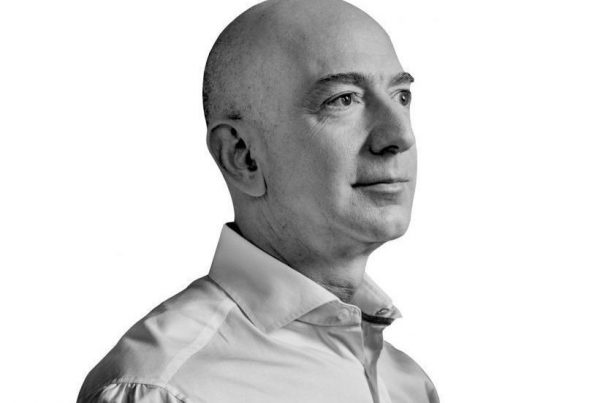Nowadays, the words “ethical” and sustainable” are often mentioned alongside conversations about branding and marketing. When brands adopt better values, strategies and actions, this encourages consumers to see them as being more trustworthy, credible and caring towards their greater community or society.
Ying Fan, Associate Professor of the University of Michigan’s Economics Department states in her recent article that “an ethical brand should not harm public good; instead, it should contribute to or promote public good.”
As such, business owners should always consider the power behind their marketing strategies and whether their image goes as far as to make a difference or appear useful to society. A company that exemplifies responsible marketing is always more likely to provide a sense of purpose to both their consumers and their workers.
In this article, we’ll review some 6 of the most important tips brands can follow to create a responsible marketing strategy. Lastly, we’ll review the overall importance of how ethical marketing can help brands connect with consumers during our current COVID-19 crisis.
1. Lead with values
Companies that adopt an effective communication strategy are always more likely to develop brand loyalty and trust. In 2020, we learned that values-based messaging was arguably just as important for brands and organisations as facts and figures were.
This year, just about every brand across the globe was forced to re-strategize their marketing to accommodate a marketplace plagued by the COVID-19 pandemic. Many brands chose to do this by leading with their values, recognising their customers’ concerns and using empathy to guide their approach.
This angle appears to have been the right one. Research conducted by Wunderman revealed that this year, 92% of customers favoured brands that spoke about their plans to fight the spread of COVID-19.
Examples of successful value-led brand campaigns included Kora Organics’ strategy to coordinate donations to support first responders in major US hospitals (such as NYU Medical Center and UCLA Medical Center), Dove’s #WashToCare campaign to promote hand washing and sanitary habits and Waitrose’s campaign that highlighted the brand’s various efforts to support NHS workers.
Prior to COVID-19, Starbucks also received public praise in 2017 when chairman and CEO Howard Schultz released a statement that admonished the Trump administration for their immigration ban on Muslims, highlighted their mission to hire more refugees and emphasised the importance of value-driven leadership.
Bottom line: companies that lead with a conscience are much more likely to be credited, trusted and supported, meaning that one of the most important ways for brands to develop a responsible marketing strategy is for them to ensure that they are adopting a values-driven approach.
2. Provide brand transparency
In the digital era, our access to information about just about any type of good, product or service is endless. Simply hiding behind phony advertisements, pitches or logos isn’t something brands can pull off anymore.
Unlike consumers of previous times, today’s demographic are much more interested in being informed about the brands they are supporting. This includes knowing what their products are made of, who makes them and the ethical framework that holds them together — including their overall practices, environmental footprint and more.
According to a study conducted by Label Insight, 94% of survey respondents said they were more likely to develop loyalty towards brands that were completely transparent about their practices. Moreover, 56% of respondents said they would pledge lifetime loyalty to brands that were transparent — and 73% of respondents said they would be happy to pay more for products that come from completely transparent brands.
Recent studies have also revealed that COVID-19 has certainly emphasised the importance of brand transparency. Fashion Revolution’s latest study found that in the last year, brands have increased their disclosure of policies and commitments to environmental and social issues. Major brands such as H&M, Adidas, Marks and Spencer and Patagonia were amongst some of the highest-scoring companies for ethical marketing strategies during the pandemic.
In all, brand transparency both attracts new customers and helps brands retain existing customers by solidifying their trust and encouraging long-term loyalty.
3. Adopt an ethical approach to tax contributions
A staggering report released at the end of 2019 revealed that nearly one hundred Fortune 500 companies evaded paying federal taxes in the previous year — including major brands such as Amazon, Chevron and Starbucks. And according to research by anti-poverty charity ActionAid International, big tech companies such as Facebook, Google and Microsoft have all failed to pay taxes in poor countries, where governments struggle to meet basic healthcare or educational requirements. These studies have further revealed that income lost from this “tax gap” could equals what could have been sufficient pay for more than 850,000 primary school teachers.
While this news is understandably frustrating for business owners, companies can adopt a more responsible marketing strategy by prioritising tax planning and making use of the tools and mechanisms provided to them by the government (including allowances, deductions, rebates and exemptions). Businesses that approach tax as a social responsibility are more likely to be seen as ethical and reputable by consumers, given that they are doing more for the social good.
Furthermore, it’s important to note that UK spending cuts have had a substantial impact on the everyday lives of people, particularly during the COVID-19 pandemic. According to the Institute of Business Ethics, companies that choose to avoid tax can be left “vulnerable to accusations of greed and selfishness, damaging their reputation and avoiding the public’s trust in them.”
4. Respect privacy and consumer data
Today, digital marketers have a myriad of tools at their fingertips that helps them collect big data from their consumers and create richer, more personalised selling strategies.
However, in an age that sees concepts such as surveillance capitalism and targeted advertising dominate nearly every corner of the Internet, consumers have understandably grown more concerned about what happens to their personal data when they provide it to the companies they do business with.
In fact, a survey conducted by AnchorFree shows that a whopping 95% of Americans say they are concerned about businesses collecting and selling their personal information without their prior consent. A 2019 survey conducted by Cisco also revealed that 32% of their respondents who said they care about privacy were willing to choose a company or provider that adopted ethical data-sharing policies. 90% of the same respondents believe that the way their consumer data is handled reflects how they are valued as customers.
When creating a responsible marketing strategy, brands’ respect for consumer data and privacy is critical when it comes to establishing trust and loyalty with customers. Senior marketers have begun addressing this concern, with plans to be more transparent about data collection and by communicating in a more personalised way about what will be done with their information.
In a post-COVID climate, brands should also be aware of mounting concerns surrounding privacy, in relation to digital contact tracing and other efforts that are being used to mitigate the spread of the virus.
Data-driven marketing and privacy
According to Google, the most responsible approach for digital marketers to take when it comes to balancing data-driven marketing and privacy are to:
Collect data responsibly
Far far away, behind the word mountains, far from the countries Vokalia and Consonantia, there live the blind texts. Separated they live in Bookmarksgrove.
Be resourceful with how audiences are reached
Even the all-powerful Pointing has no control about the blind texts. One day a line of blind text by the name of Lorem Ipsum decided to leave.
Hire and train for privacy
A small river named Duden flows by their place and supplies it with the necessary regelialia. It is a paradisematic country.
5. Become B Corp-certified
Nowadays, more and more society and community-minded entrepreneurs are choosing to become B Corp-certified. B Corp Certification requires businesses to put sustainability at the forefront of their business model, ensuring that their operations create as much value for society as they do for money. This includes adopting transparent business practices, as well as prioritising positive environmental and social benefits.
B Corp certification has become one of the best ways for brands to strengthen their reputation as sustainability-focused establishments. Several studies, such as Nielsen’s Sustainability Imperative, have shown that consumers in various demographics worldwide are happy to pay more for sustainable consumer brands. As such, companies that become B Corp-certified are more likely to be seen as both credible and authentic in the eyes of consumers.
Moreover, companies that become B Corp-certified can connect with a web of additional resources — such as a community of other like-minded brands exploring sustainable strategies, and an online communications platform called the B Hive. These channels are a great way for ethical brands to follow examples and learnings from the larger B Corp community. They can also help brands increase their involvement with their network or community (and even improve their greater reputation with potential customers).
6. Embrace charitable giving
In today’s world, more people than ever before are focused on their social impact.
For businesses, this means adopting marketing strategies that cater towards conscientious consumers are more likely to be met with success. According to a Cone Cause Evolution Survey, 87% of respondents say they would switch to a brand that supports an important cause if price and quality were to be weighed equally.
As a result, more and more companies have started launching cause-related marketing campaigns by partnering with charitable causes. By endorsing charitable giving and making it part of their brand, this is an ideal way for businesses to build rapport with consumers who are invested in similar causes. It’s also a great way for brands to distinguish themselves from their competitors and, of course, cultivate stronger loyalty and trust with consumers.
Cause-related marketing has undoubtedly become one of the largest drivers of brand loyalty and business growth in the age of COVID-19 — with a myriad of brands, both large and small, developing charitable initiatives to raise support during the pandemic.
Notable examples include Xbox’s Halo franchise raising over US $450,000 for a COVID-19 relief fund by providing players with access to exclusive downloadable content, or popular phone case company CASETiFY donating 100% of their proceeds to the same relief fund and raising US $100,000.
Image features a Microsoft Xbox 1. Image Credit: @alexacea
How ethical marketing can help customers connect with brands in times of crisis
It’s safe to say that ethical marketing has taken on a whole new model in the age of COVID-19. In the span of a year, brands have been forced to make rapid changes to their marketing strategies and how they pivot their services towards their consumers. While this crisis may seem like it has brought successful brand campaigns to a standstill, other studies suggest otherwise.
In fact, a YouGov poll conducted earlier this year shows that only 9% of UK respondents expect their lives to return to “normal” after the COVID-19 crisis ends. The survey results actually show that Britons have since adopted more new lifestyle changes during the pandemic, such as spending more time in nature, cooking at home and placing greater emphasis on connecting with old friends.
This year has enforced radical shifts to our behaviour, meaning that customer values have also been subject to change. As a result, marketers have been met with the need to establish new guidelines that support their brand’s promises and adopt strategies that will best help them uphold trust during these challenging times.
As we near the end of the global pandemic, it’s probably safe to say that brands that have chosen to take an ethical approach in the age of COVID are most likely to generate greater loyalty in their consumer base in the years to come.








Recent Comments